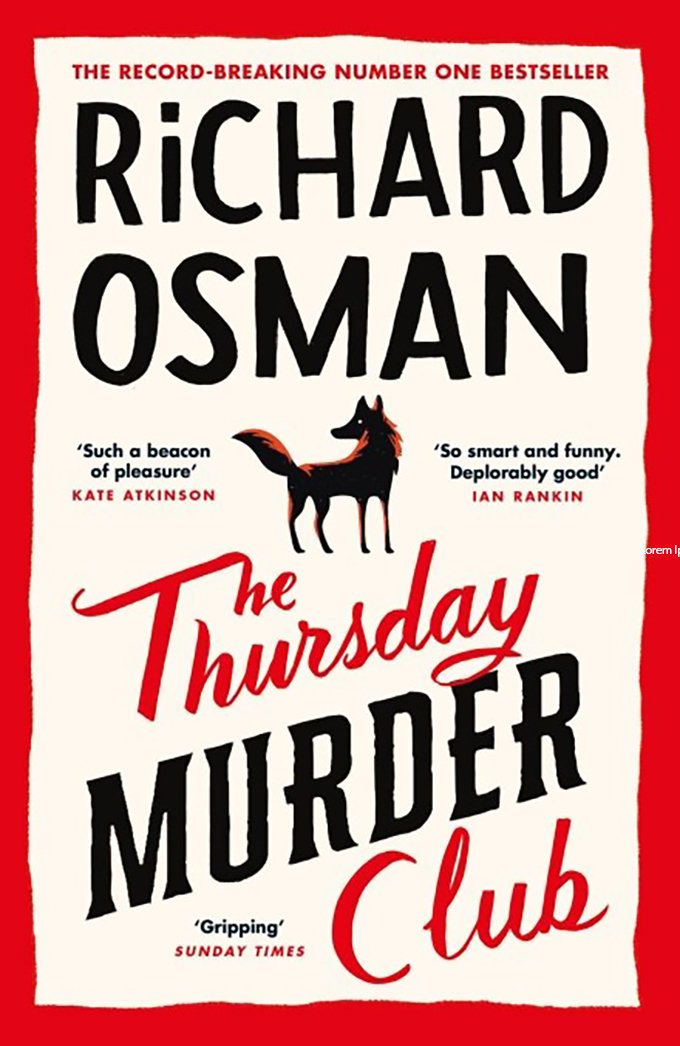Charlotte Squires is the BGS Digital Media Editor and host of #geribookclub, in addition to working as a specialist trainee in geriatric medicine. She tweets from @charsquires.
On January 12th our online book club gathered once again from the comfort of their own sofas to discuss Richard Osman’s first novel and recent bestseller, The Thursday Murder Club. A summary of the discussion for those unable to make it is as follows, in case you’d like to think about these themes in your own time.
Question One: How are older adults portrayed in this novel? Are there any tropes or stereotypes, and how are the contributions of older characters perceived?
The general feel was that this novel was positive in including older adults as central characters to a greater extent than average plotlines and noted that stereotypes, in general, are hard to avoid. It was also commented that characters often deliberately manipulated younger characters on several occasions by using their age or inaccurately perceived infirmity to their advantage, and often took delight in doing so – leading us to wonder how often older adults in real-life encounter similar assumptions from younger people, but also how often they might understandably then work it to their advantage.
Several participants noted that a strength was how relationships between older adults and their grown children were portrayed and felt this led to reflection on their own familial relationships.
Question Two: How is Coopers Chase portrayed, including The Willows? And would you want to live there?
Coopers Chase was noted to be the sort of residence that only wealthier people would be able to choose and therefore arguably not reflective of the experience of most older adults. The common grievances regarding parking spaces were picked up as an eternal issue, and whilst some members felt that the number of committees in action to ensure smooth running of the community would not be their cup of tea, a few tweeters (notably with BGS roles…) felt this was not a deterrent and more an opportunity to continue to utilise organisational skills when retired. Each to their own, perhaps? It was noted that residents at Coopers Chase were given the freedom to engage in community activities, or to pursue solitude, and this was felt to be positive and supportive of individual preferences.
The Willows, thought to be most in keeping with nursing home-level care, was portrayed mostly in a negative light: ‘a prison from which no escape was possible’. This draws parallels with how a similar institution was portrayed in our first book ‘Three Things About Elsie’, making us keen to track down more positive portrayals of this type of senior residential care – suggestions on a postcard, or a tweet, are very welcome! Similarly, after reading a book about more affluent older adults, we wondered whether we should track down a novel featuring the theme of poverty in older age for a future meeting.
Question Three: Several characters had experienced loss or bereavement. How was this shown?
Participants felt that the novel demonstrated well that there are many ways to grieve and many different experiences of bereavement. It was felt to serve as a reminder that older adults are more likely to have experienced adverse life events over time which may continue to impact current relationships and outlooks. We felt the novel did a good job of describing loneliness in older age, something which is increasingly recognised as a significant issue (and which formed part of the mission statement for our recent BGS President Tash Masud). We did wonder however if some aspects of grieving, including suggestions of depression and suicidal ideation in one character, were minimised slightly in a way they might not have been with younger characters. We also felt uncomfortable about a related plot point concerning the mode of death of a character as we felt this was glossed over or accepted in a way it would not have been in a younger person…..but given the promise to avoid spoilers, we shall say no more…..
We were so delighted to once again have participants from a range of clinical and non-clinical backgrounds, and from a range of stages of training. It was wonderful to welcome people based throughout the UK too and we’re delighted people were able to juggle the time difference and their clinical commitments, to join in.
Our next meeting will be on Tuesday March 9th, discussing ‘The Age of Ageing Better’ by Anna Dixon, and we look forward to ‘seeing’ you there. All selected books are available on audio to aid accessibility, and (current restrictions accepted), you can also ask both council and local medical libraries to source books for you at no cost.
